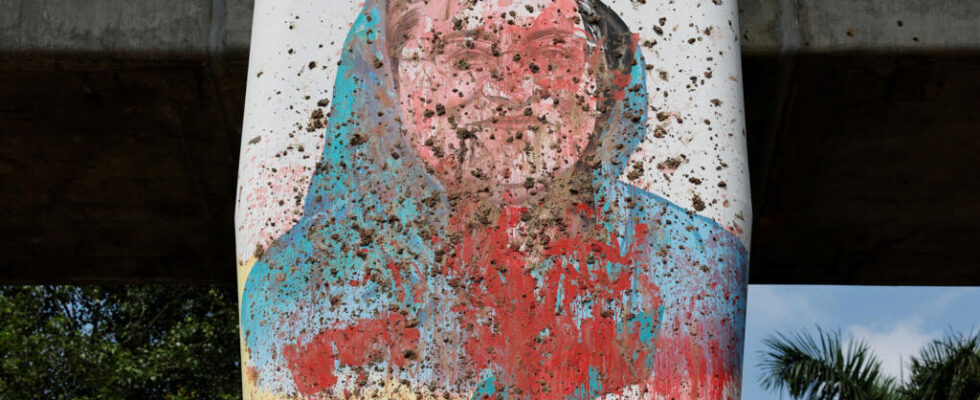The brutal repression of protests in Bangladesh has brought down the Dhaka regime. A look back at the turbulent history of this South Asian country born in the turmoil of the region’s post-colonial history.
4 mins
1971: Proclamation of the independence of Bangladesh
Located in the Indian subcontinent, the Bangladeshformerly East Pakistan, which has no territorial continuity with Pakistan, had nevertheless been attached to this country, during the partition of the Empire of India in 1947. From 1970, this Pakistani province which felt culturally and economically abandoned was in the grip of a bloody civil war. Overwhelmed by the influx of refugees, the Indian neighbor intervened militarily in the conflict to come to the aid of the separatists. These events led to the proclamation of independence by Dacca under the aegis of Sheikh Mujibur Rahman, leader of the secessionist movement then exiled in India. The People’s Republic of Bangladesh was born on December 17, 1971.
1973: First parliamentary elections
In power since independence, Sheikh Mujibur Rahman’s Awami League won a landslide victory in the 1973 parliamentary elections. Buoyed by this victory, he was appointed president, but soon faced with climatic havoc that had a negative effect on the economy in general and agriculture in particular, he declared a state of emergency and established an authoritarian regime.
1975: Military coup
Sheikh Mujibur Rahman, nicknamed “Bongobodhu” or Mentor of Bengal, is assassinated in a military coup led by Bangladeshi General Ziaur Rehman. Sheikh Mujibur’s family is decimated. The Constitution is suspended and martial law declared.
1975-1990: Political instability
During these fateful fifteen years, Bangladesh experienced a succession of military coups and counter-coups. The country also witnessed the rise of the Bangladesh Nationalist Party (BNP) created by military leader Ziaur Rehman. But the latter was, in turn, suppressed in a military coup against his government. In 1988, Islam became the official religion.
1991: Return to parliamentary democracy
Mrs Khaleda Zia, Ziaur Rehman’s widow and leader of the BNP since her husband’s death, leads her party to power and becomes the first female prime minister in the country’s history. She promises to eradicate corruption and illicit arms possession that poison political and social life.
1996-2009: Alternations
The 1996 legislative elections were won by the Awami League, led by Sheikh Hasina Wajed, the daughter of Sheikh Mujibur Rahman who had survived the massacre of her family in 1975. The legislative elections, which take place every five years, saw the establishment of a system of alternation between the two government parties, the Awami League, with socialist tendencies and heir to the independence movement, and the BNP, the large conservative party. However, the 1990s and 2000s saw political life deteriorate with repeated strikes that paralyzed the country as well as bloody attacks attributed to Islamists. These years were also marked by the return to favor of the Islamist movement, the Jamaat-e-Islami, reputed to be close to Pakistan. After independence, this party had been banned for nearly ten years for having taken the side of the separatists during the civil war. The war of independence against Pakistan left at least 300,000 dead.
2009 – 2024: Rigged elections and police brutality
After five years in opposition, Sheikh Hasina returned to power in 2009. She has since perpetuated her rule by organizing rigged elections and systematically stifling the opposition. Critics of the prime minister accuse the latter, whose family was inextricably linked to the Bangladesh independence movement, of having allowed the country to descend into an autocratic spiral. Critics point out that she was re-elected for a fifth term in a controversial election that was boycotted by the opposition. While under her leadership, Bangladesh has experienced a definite economic boom, her government has failed to control the inflation and unemployment that are hitting the population hard. It is in this context that the student revolt broke out, defying the government since the beginning of July 2024. The brutality of the repression that left at least 300 dead transformed this movement that began as a social protest into a crisis of the regime. Sheikh Hassina’s resignation and his flight abroad plunge Bangladesh into a new period of uncertainty.
Read alsoBangladesh: The day Prime Minister Sheikh Hasina resigned and fled the country
Visionary Icon or Authoritarian Dynast? Sheikh Hasina, Bangladesh’s Elusive Leader
